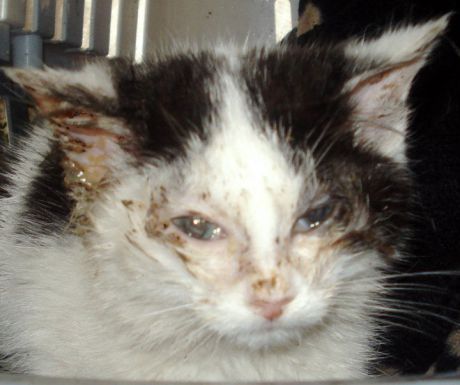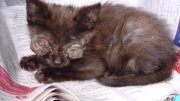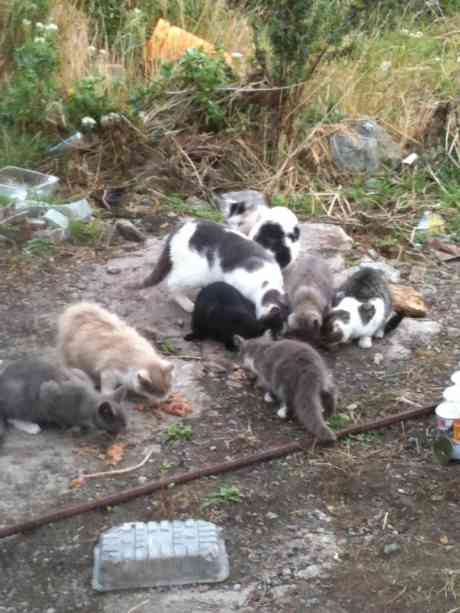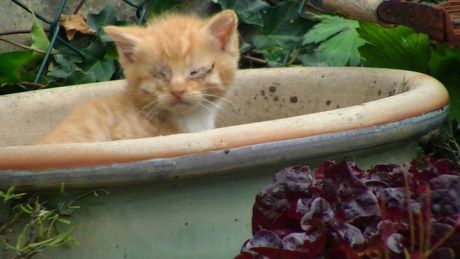Parse failure for https://anti-empire.com/feed/. Last Retry Friday January 09, 2026 23:51
Indymedia Ireland is a volunteer-run non-commercial open publishing website for local and international news, opinion & analysis, press releases and events. Its main objective is to enable the public to participate in reporting and analysis of the news and other important events and aspects of our daily lives and thereby give a voice to people.
 Fraud and mismanagement at University College Cork Thu Aug 28, 2025 18:30 | Calli Morganite Fraud and mismanagement at University College Cork Thu Aug 28, 2025 18:30 | Calli Morganite
UCC has paid huge sums to a criminal professor
This story is not for republication. I bear responsibility for the things I write. I have read the guidelines and understand that I must not write anything untrue, and I won't.
This is a public interest story about a complete failure of governance and management at UCC.
 Deliberate Design Flaw In ChatGPT-5 Sun Aug 17, 2025 08:04 | Mind Agent Deliberate Design Flaw In ChatGPT-5 Sun Aug 17, 2025 08:04 | Mind Agent
Socratic Dialog Between ChatGPT-5 and Mind Agent Reveals Fatal and Deliberate 'Design by Construction' Flaw
This design flaw in ChatGPT-5's default epistemic mode subverts what the much touted ChatGPT-5 can do... so long as the flaw is not tickled, any usage should be fine---The epistemological question is: how would anyone in the public, includes you reading this (since no one is all knowing), in an unfamiliar domain know whether or not the flaw has been tickled when seeking information or understanding of a domain without prior knowledge of that domain???!
This analysis is a pretty unique and significant contribution to the space of empirical evaluation of LLMs that exist in AI public world... at least thus far, as far as I am aware! For what it's worth--as if anyone in the ChatGPT universe cares as they pile up on using the "PhD level scholar in your pocket".
According to GPT-5, and according to my tests, this flaw exists in all LLMs... What is revealing is the deduction GPT-5 made: Why ?design choice? starts looking like ?deliberate flaw?.
People are paying $200 a month to not just ChatGPT, but all major LLMs have similar Pro pricing! I bet they, like the normal user of free ChatGPT, stay in LLM's default mode where the flaw manifests itself. As it did in this evaluation.
 AI Reach: Gemini Reasoning Question of God Sat Aug 02, 2025 20:00 | Mind Agent AI Reach: Gemini Reasoning Question of God Sat Aug 02, 2025 20:00 | Mind Agent
Evaluating Semantic Reasoning Capability of AI Chatbot on Ontologically Deep Abstract (bias neutral) Thought
I have been evaluating AI Chatbot agents for their epistemic limits over the past two months, and have tested all major AI Agents, ChatGPT, Grok, Claude, Perplexity, and DeepSeek, for their epistemic limits and their negative impact as information gate-keepers.... Today I decided to test for how AI could be the boon for humanity in other positive areas, such as in completely abstract realms, such as metaphysical thought. Meaning, I wanted to test the LLMs for Positives beyond what most researchers benchmark these for, or have expressed in the approx. 2500 Turing tests in Humanity?s Last Exam.. And I chose as my first candidate, Google DeepMind's Gemini as I had not evaluated it before on anything.
 Israeli Human Rights Group B'Tselem finally Admits It is Genocide releasing Our Genocide report Fri Aug 01, 2025 23:54 | 1 of indy Israeli Human Rights Group B'Tselem finally Admits It is Genocide releasing Our Genocide report Fri Aug 01, 2025 23:54 | 1 of indy
We have all known it for over 2 years that it is a genocide in Gaza
Israeli human rights group B'Tselem has finally admitted what everyone else outside Israel has known for two years is that the Israeli state is carrying out a genocide in Gaza
Western governments like the USA are complicit in it as they have been supplying the huge bombs and missiles used by Israel and dropped on innocent civilians in Gaza. One phone call from the USA regime could have ended it at any point. However many other countries are complicity with their tacit approval and neighboring Arab countries have been pretty spinless too in their support
With the release of this report titled: Our Genocide -there is a good chance this will make it okay for more people within Israel itself to speak out and do something about it despite the fact that many there are actually in support of the Gaza
 China?s CITY WIDE CASH SEIZURES Begin ? ATMs Frozen, Digital Yuan FORCED Overnight Wed Jul 30, 2025 21:40 | 1 of indy China?s CITY WIDE CASH SEIZURES Begin ? ATMs Frozen, Digital Yuan FORCED Overnight Wed Jul 30, 2025 21:40 | 1 of indy
This story is unverified but it is very instructive of what will happen when cash is removed
THIS STORY IS UNVERIFIED BUT PLEASE WATCH THE VIDEO OR READ THE TRANSCRIPT AS IT GIVES AN VERY GOOD IDEA OF WHAT A CASHLESS SOCIETY WILL LOOK LIKE. And it ain't pretty
A single video report has come out of China claiming China's biggest cities are now cashless, not by choice, but by force. The report goes on to claim ATMs have gone dark, vaults are being emptied. And overnight (July 20 into 21), the digital yuan is the only currency allowed. The Saker >>
Interested in maladministration. Estd. 2005
 RTEs Sarah McInerney ? Fianna Fail?supporter? Anthony RTEs Sarah McInerney ? Fianna Fail?supporter? Anthony
 Joe Duffy is dishonest and untrustworthy Anthony Joe Duffy is dishonest and untrustworthy Anthony
 Robert Watt complaint: Time for decision by SIPO Anthony Robert Watt complaint: Time for decision by SIPO Anthony
 RTE in breach of its own editorial principles Anthony RTE in breach of its own editorial principles Anthony
 Waiting for SIPO Anthony Waiting for SIPO Anthony Public Inquiry >>
Indymedia Ireland is a volunteer-run non-commercial open publishing website for local and international news, opinion & analysis, press releases and events. Its main objective is to enable the public to participate in reporting and analysis of the news and other important events and aspects of our daily lives and thereby give a voice to people.
 Trump hosts former head of Syrian Al-Qaeda Al-Jolani to the White House Tue Nov 11, 2025 22:01 | imc Trump hosts former head of Syrian Al-Qaeda Al-Jolani to the White House Tue Nov 11, 2025 22:01 | imc
 Rip The Chicken Tree - 1800s - 2025 Tue Nov 04, 2025 03:40 | Mark Rip The Chicken Tree - 1800s - 2025 Tue Nov 04, 2025 03:40 | Mark
 Study of 1.7 Million Children: Heart Damage Only Found in Covid-Vaxxed Kids Sat Nov 01, 2025 00:44 | imc Study of 1.7 Million Children: Heart Damage Only Found in Covid-Vaxxed Kids Sat Nov 01, 2025 00:44 | imc
 The Golden Haro Fri Oct 31, 2025 12:39 | Paul Ryan The Golden Haro Fri Oct 31, 2025 12:39 | Paul Ryan
 Top Scientists Confirm Covid Shots Cause Heart Attacks in Children Sun Oct 05, 2025 21:31 | imc Top Scientists Confirm Covid Shots Cause Heart Attacks in Children Sun Oct 05, 2025 21:31 | imc Human Rights in Ireland >>
|
Feral Cats In Crisis
 national |
animal rights |
news report national |
animal rights |
news report
 Friday March 16, 2012 12:31 Friday March 16, 2012 12:31 by J Knox by J Knox

Plight of our Forgotten Felines
With a million stray cats struggling to survive in harsh conditions, the Government has once again excluded their welfare from the draft Animal Health and Welfare Bill. Campaigners are lobbying for cat welfare to be included in the new animal welfare laws, that cats should no longer be classified as 'pests' alongside mice and rats and that a comprehensive neutering campaign be put in place. This article hopes to highlight the current situation in Ireland as Rescues and welfare organisations reach breaking point and the situation spirals out of control while the Government refuses to get involved.
 Sick feral kitten With current estimates of up to a million stray cats struggling to survive in harsh conditions throughout Ireland, the launch of the new draft Animal Health and Welfare Bill has met with outrage from campaigners for feral cat welfare, dismayed by the absence of provisions to attempt to address the situation.
Lobby group, Feral Cats Ireland, has been campaigning for changes in legislation, including staging protests outside Leinster House and gathering petitions of over 11,000 signatures in their bid to encourage the Department of Agriculture to include cats in the Animal Health and Welfare Bill for the first time in Irish history.
The campaigners are asking that feral cats are no longer classified as ‘pests’ alongside rats and mice and that they should not be dealt with by Pest Control companies, but that they are afforded the same legal protection as ‘domestic’ cats and that a comprehensive neutering programme be put in place.
Often referred to as wild cats, there are in fact no wild cats in Ireland, although Minister for Agriculture Simon Coveney still refers to them as such and recently reinforced the chasm between cats with homes and those less fortunate by stating ‘Cats which are owned by humans will receive the full protection of the Animal Health and Welfare Bill.’
So once again, feral cats are ostracized from cat society.
A Feral Cats Ireland spokesperson said ‘Feral cats are exactly the same species as ‘pet’ cats; felis catus. The only difference is that either they or their parents have been abandoned or strayed and they no longer have a home with humans. Through circumstances out of their control, they should not suddenly be branded as worthless and classified as ‘pests’ alongside rats and mice, which in turn leads to them being poisoned, shot, drowned and generally disposed of at will. Pest control companies should not be dealing with cat colonies full stop as it is ineffective anyway.’
The majority of these cats remain un-neutered and therefore continue to breed uncontrollably and animal welfare organisations report their ever increasing numbers are now at crisis levels nationwide. With a female cat capable of having up to 3 litters a year with up to 8 kittens in each litter, an initial colony of 6 un-neutered cats can quickly swell to over 100 within a year and it is with this over-population that problems start as the situation spirals out of control.
Of the approximate 300,000 kittens born every year in Ireland, 180,000 will die before reaching 4 months old, mostly due to starvation, through adverse conditions leaving them vulnerable to sickness and disease or by being deliberately killed by humans.
A spokesperson for Feral Cats Ireland said ‘We have to tackle their situation and try to get the numbers down. It isn’t humane that more and more animals are being born in unacceptable conditions where their life expectancy is often just a few weeks, months or years.’
They state that a long term trap neuter return (TNR) project needs to be implemented nationwide, in tandem with education by welfare groups on the advantages of neutering for the owners of domestic cats.
The Trap Neuter Return (TNR) method begins by trapping the cats in humane traps, in which they are brought to a vet to be neutered, health checked and treated for parasites.
Whilst under anaesthetic, the tip of one ear is removed as the universal sign that they have been neutered. After a recovery period of 24-36 hours the cat is then returned to its original location.
This stops breeding and ends population growth immediately and over time the feral cat numbers decline naturally.
A spokesperson for Feral Cats Ireland said ‘We are aware that the Government will say that there are no funds available for such a project, however we are asking that they look for a long term solution rather than just viewing the short term.’
The spokesperson continued ‘For example, to neuter a pair of male/female cats would cost approximately €85, whereas left to breed, within a year that number can easily have swollen to 30 cats. It would be far more costly to destroy and dispose of this many cats, plus some are sure to escape and continue breeding or others will just move into the vacated area and within a year the situation is back to square one and the cycle continues endlessly. This doesn’t make economic sense.’
Trap/neuter/return schemes can be successful, as reported in a 15 year study of the practice in Rome where they have a no-kill, trap/neuter/return project in operation and these findings are backed up by a number of long term studies carried out at US Universities, such as one in Washington where the feral cat population has fallen by 90% since 1988 due to a TNR project.
The traditional approach by animal control to the problem in Ireland has been to catch and kill the cats. However it has been documented worldwide that this has been proven ineffective as the survivors continue to breed and others move into the territory now made vacant, which is known as the vacuum effect.
Pete Wedderburn, an acclaimed veterinary surgeon for over 25 years and resident vet on the ‘Pete the Vet’ spot on TV3’s Ireland AM, said ‘People often want to just get rid of feral cat colonies. Just trap them and have them euthanized, have them killed, just so they’re gone but what they need to realise is that if you do that the niche for a cat colony remains there, so that in a matter of weeks or months you’ll have feral cats from surrounding areas moving into that niche and beginning to multiply again so the following year, you have exactly the same problem you had the previous year.’
He continued ‘It’s far, far more effective to trap the cats that are there, make sure they’re healthy, to neuter them and then to put them back again so that what you will then have is a stable colony of cats that are keeping other cats out of the area and they won’t be multiplying and they won’t be causing a problem because of dozens of kittens arriving and so on.’
Regarding claims that feral cats pose a health risk to the public, Worldwide studies have shown that they can live full, healthy lives and have been proven to be no more likely to have FIV (cat ‘Aids’) or feline leukaemia (FeLV) than an outdoor ‘pet’ cat. In addition, by living in close proximity to humans, they provide very effective vermin control.
Pete Wedderburn agreed with these findings, saying ‘I don’t think there’s any evidence that feral cats carry diseases that affect humans to any significant extent. I would have a bigger concern that the feral cats themselves suffer from disease which is an animal welfare issue.’
Mr Wedderburn continued ‘They tend to be half starved, they’re not vaccinated and wormed so they end up leading short, miserable lives. As far as I’m concerned the feral cat population should be controlled for their own sake, for the sake of the animals, to make sure they live reasonable quality lives rather than the current situation.’
Senator David Norris commented that ‘It (TNR) is certainly the solution but to have a nationwide impact you would need a lot of support and legislation.’
From a Government point of view, feral cats are not a protected species under the Wildlife Acts, nor are they covered by legislation such as the Control of Dogs Act, which makes local authorities responsible for their control.
As a result of this lack of legislation and absence of any statutory requirements for the Councils to act, the situation is mostly being tackled by a handful of unpaid volunteers dotted around the Country.
One such volunteer is Maureen O’Malley-Gibbons of Mayo Cat Rescue, who said ‘The mandatory spaying/neutering of cats is definitely something to be considered in Ireland as at present many people don’t do it of their own accord which is why there is such a huge number of feral cats in Ireland.’
In recent times, word has been spreading internationally as to the lack of compassion we show our animals, and as a Country that relies so heavily on tourism and the industry it provides, can we really afford to have our reputation sullied further? The sight of sick, starving cats on our streets is not the welcome in Ireland we like to portray.
Whilst the debate as to who should take responsibility for them rages on, the breeding season approaches and Rescues around the country are once again bracing themselves to deal with the flood of sick, abandoned and dying kittens and cats.
Maybe it’s time to stop passing the buck. The see no evil, hear no evil, speak no evil approach taken by politicians in the past while a million animals suffer is clearly not working.
After waiting over 100 years for new animal welfare laws, the complete omission of the welfare of so many Irish feral cats is making the whole exercise appear a travesty. Will this Government step up to the mark and take action or just bury us in jargon and excuses? If this proves to be the case, Feral Cats Ireland assure us they will continue campaigning until justice is served.
For the animals.

Lorcan the blind kitten

Colony of homeless cats

Kitten living in a flowerpot
|
 national |
animal rights |
news report
national |
animal rights |
news report
 Friday March 16, 2012 12:31
Friday March 16, 2012 12:31 by J Knox
by J Knox




























 printable version
printable version

 Digg this
Digg this del.icio.us
del.icio.us Furl
Furl Reddit
Reddit Technorati
Technorati Facebook
Facebook Gab
Gab Twitter
Twitter